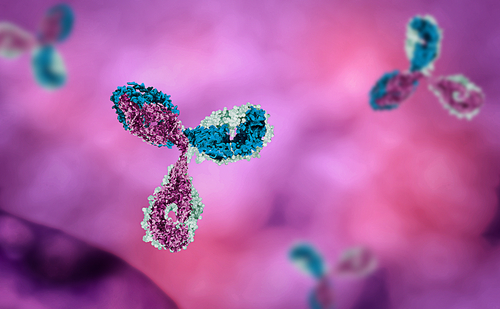ProMIS’ PMN310 Antibody Candidate Shows Greater Effect, Less Risk Than Other Therapies, According to Data
Written by |

ProMIS Neurosciences’ candidate PMN310 can specifically target toxic clusters of soluble amyloid-beta protein, and be safely administered at high doses with reduced risk of characteristic Alzheimer’s brain changes or swelling, according to clinical data.
PMN310 has the potential for greater therapeutic potency compared with other amyloid-beta-directed antibodies for treating Alzheimer’s disease, the researchers said.
The findings, “Selective targeting of HHQK conformational epitope in amyloid-beta oligomer species by PMN310, a monoclonal antibody rationally designed for greater therapeutic potency in Alzheimer’s disease,” will be presented as a scientific poster during the Keystone Symposia on Neurodegenerative Diseases: New Insights and Therapeutic Opportunities, taking place June 16-20 at the Keystone Resort in Colorado.
Alzheimer’s is a progressive neurodegenerative disorder characterized by excessive deposits of amyloid-beta and Tau proteins in the brain.
Abnormal (toxic) forms of amyloid-beta fragments aggregate into insoluble plaques, or clumps, between neurons, interfering with cellular communication and eventually leading to nerve cell death.
These plaques have long been thought to be the main molecular feature of Alzheimer’s. However, recent research suggests the plaques themselves are not directly toxic. Instead, they lead to another toxic species, soluble oligomeric forms of beta-amyloid, which play a larger role than the insoluble clusters in Alzheimer’s neuronal damage. They also correlate more closely with the clinical aspects of the disease, including dementia severity.
Oligomers — “oligo” meaning few, and “mer” meaning a single unit — are small assemblies of soluble beta-amyloid protein, and might be the real culprit of compromised cellular communication in Alzheimer’s disease. Researchers say their small size allows them to “fit” between adjacent neurons.
“The current therapeutic gap lies in how to effectively neutralize the toxic oligomer without wasting antibody on non-toxic forms of the protein,” Johanne Kaplan, PhD, ProMIS’ chief development officer, said in a press release. Kaplan will present the poster at the Keystone Symposia.
The man-made antibody PMN310 works by binding to neurotoxic amyloid-beta aggregates and preventing additional amyloid-beta molecules from adding to them. This means the therapy may potentially neutralize toxic aggregates and prevent neurodegeneration.
ProMIS’ work shows PMN310 has superior selectivity for soluble amyloid-beta toxic oligomers, greater therapeutic effect, and less toxicity, the researchers said.
Through the application of two complementary algorithms, ProMIS platform can identify specific targets on toxic oligomers that are known to cause neurodegenerative disorders. After rigorous screening, thorough validation, binding studies, and functional assays, ProMIS scientists can then evaluate the binding of antibody candidates to the suspected toxic oligomers in post-mortem brain samples of Alzheimer’s patients.
“We’re pleased our data will help inform discussions regarding future directions among the world’s most accomplished researchers. Our data will demonstrate the unique ability of the ProMIS discovery platform to generate antibodies that bind the toxic species of amyloid beta while preserving healthy forms of the protein. Humanized PMN310 is currently in advanced preclinical development,” Kaplan added.





